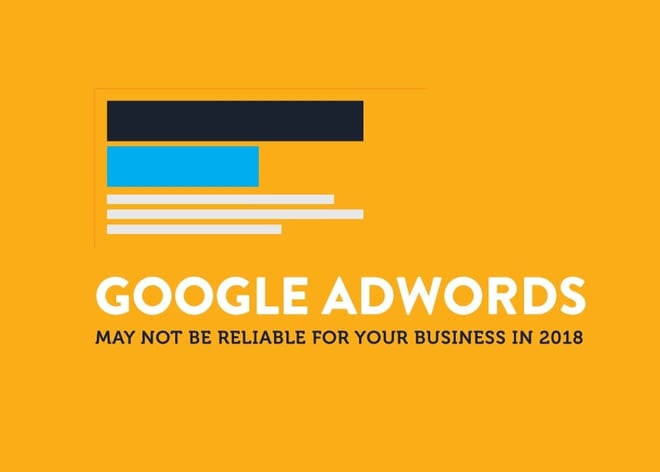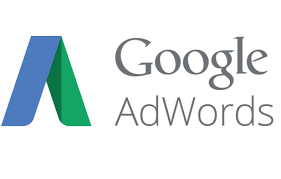
Editor's Note: Today we have a guest contribution from Ryan Meghdies of Tastic Marketing Inc. Ryan is an experienced SEM professional who has successfully managed numerous paid search campaigns. Google recently changed their policies regarding daily budgets and Ryan believes it could negatively impact many businesses who use the platform.
Ryan shares his thoughts on the changes and offers advice for business owners who are struggling with the new policies. Take it away Ryan!
In 2015 Google dropped their motto: “Don’t be evil”. I guess it didn’t take long to start making changes that are leaving many marketers and businesses uneasy about what has happened and what is coming.
Google AdWords has made changes to the way they charge and manage daily budgets, which is a big change to advertisers. With these new changes, Google can now spend twice your daily budget but will maintain your monthly spend.

For example, if your budget is 200 dollars/day, Google can now spend 400 dollars/day but not more than 6,000 dollars/month (200 dollars/day*30 days in a month).
While Google positions this change as a way for advertisers to remain competitive in the AdWords playing field, by adjusting spend accordingly, it could also mean that your budget is getting spent faster than you expect it too.
I see this as very bad news for businesses advertising on AdWords and as you can see below, many marketers agree. However, before we get into why this is going to lower profits for most businesses let’s look at the businesses it will help.
Who Is this Good For?
In niche industries that do not have a lot of competition, it is common to spend an average of X dollars per day, but then need to spend twice that on other days.
As an example, let’s say Company A has a budget of 35 dollars/day (i.e. 1,050 dollars/month). However, they notice that unpredictably there are some days where they could have spent 65 dollars. If they increase their budget to 65 dollars/day (nearly double their monthly spend, 1,950 dollars/month).
While Google has helped the people described above, this is not the situation for most businesses. In fact, over the last 12 years, I would say less than 5% of the campaigns I have worked on fit into the category above.
So what about everyone else?
How will this impact my advertising?
Google AdWords is forcing businesses to spend their budgets twice as fast.
What Google is essentially doing is raising the cost-per-click (CPC) across all industries, for all keywords. This is because each advertiser will be forced to spend more on Google AdWords.
Any business that runs out of budget mid-month will no longer generate any leads, resulting in those businesses either suffering until the following month with no new leads or having to increase their budget in order to stay competitive.
In both cases, it's a win for Google. Even if the business doesn't increase their budget, they would have spent more while they did have a budget, forcing other businesses to also spend more. This means when that company's budget renews the following month, competition is even higher. See where this is going?
Similar to the popular book and movie, "The Hunger Games", Google is essentially forcing everyone who uses their platform to spend more aggressively or perish.

It’s worth mentioning that if Google had offered this as a campaign feature instead of forcing this on all accounts, I wouldn’t be questioning Google’s integrity. If it was a campaign feature, the responsibility would be on us as marketers to turn off the feature.
Also, keep in mind that there is no way to predict how quickly this will impact your industry, geographic location, and respective Cost Per Acquisition (CPA).
What should I do?
So now that you're aware of these new changes to Google AdWords, what can you do to optimize your campaigns?
Here are someproactive steps you can take.
#1: Disable any automated bidding features by Google
As a rule of thumb at Tastic Marketing, we almost exclusively use “Manual CPC bidding” - the exception being a few specific campaigns for large enterprises. It is my opinion, that if no one used automated bidding types/features this change would not have been an issue.
#2: Setup an AdWords script
I am a huge advocate for scripting and that is especially true with AdWords.
We are currently using AdWords scripts to monitor the impact of the changes Google has made. If your business needs to monitor and cap spending, that is also possible. Such a script could trick Google by adjusting the daily budget when a desired cap is reached and resetting it the next day.
#3: Analyze Your Data
While I cannot tell you in an article how to enhance the performance of your account, it is important to find efficiencies in the things you can control. Make sure Google Analytics is setup and configured to capture the metrics you need (e.g. setup views, custom dimensions and metrics).
If you’re not remarketing and do not have targeting setup, what are you waiting for?! Ensure your CRM is collecting data so that you can provide valuable and relevant experiences to each visitor.
#4: Organic Traffic Is Even More Important
Aside from the above, we believe the best thing to do is focus on Search Engine Optimization (SEO) for your website. Many agencies and businesses who engage in SEO consider it a mysterious service with unclear actions and results. While no one can guarantee the result of an action, SEO experts can estimate levels of engagement to work toward a goal.
Find yourself a trusted marketing expert. Most of our clients started out with four AdWords conversions for every one SEO lead, but after a year, you may find that this ratio flips.
#5: Know Your Numbers
Take the time to examine each marketing medium you are investing in. Ask lots of questions:
- What is the ROI for each medium?
- Are any mediums close to saturation?
- What is the relationship of dollars invested vs. dollars returned per medium (it’s never a linear curve)?
- Etc.
Following these steps will help you handle the coming challenges associated with the changes Google has made. To learn more about these changes straight from Google, read this article they published.

